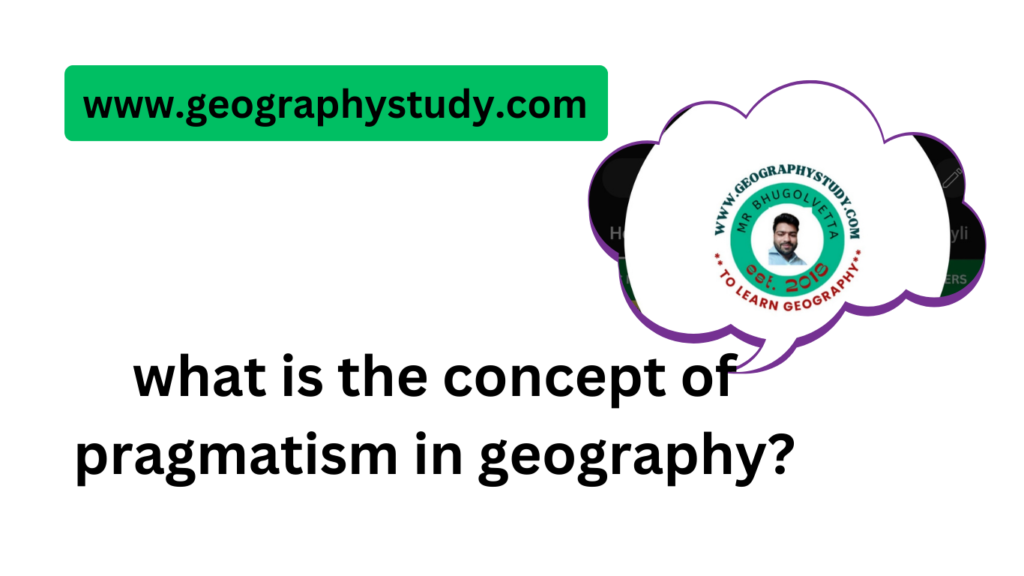The concept of pragmatism is a philosophical perspective that is centrally concerned with the construction of meaning through experience.
In geography, pragmatism is problem-driven, pluralistic, empirical, and outcomes-oriented. It rejects dualisms and emphasizes the human element in resolving geographic problems.

What is the philosophy and concept of pragmatism?
Pragmatism is a philosophy which asserts that meaning and knowledge can only be defined in terms of their role in experience. and also emphasizes experiences, experimental inquiry, and truth as criteria for evaluating consequences.
It is the position in philosophy that defines meaning and knowledge in terms of their function in experience, concerning adjustment and the resolution of problematic situations.
Pragmatism is a modified form of positivism. like positivism and pragmatism, advocates the use of the scientific method.
Proponents of pragmatism use value-based scientific methodology (incorporating human attitudes, beliefs, and norms) to solve practical problems in society and to ascertain geographic reality.
it is action-oriented, and user-oriented, and extends the experimental method to include evaluation and implementation.
The concept of pragmatism was developed in America after the Civil War and brought about intellectual and social changes up until the Second World War. Its proponents in substantial numbers are also found in West European countries.
aim of the concept of pragmatism?
to emphasize the human element; our thoughts determine our acts, and our acts determine the previous nature of the world. Here, man is central; this view is similar to that expressed by Vidal de la Blache and the French School of Geography.
Who coined the term pragmatism?
In 1981, Frazier was the first to adopt the term pragmatism in geography. He discovered that human interests, desires, prejudices, and group values differ across space. These traits determine the action roles. This is why Frazier took the influence of geographical changes in everyday settings seriously on both knowledge development and knowledge implementation.
The name is derived from the same Greek word ‘pragma’, which means action. Pragmatism started as a philosophical movement in the late 1800s. Through the early twentieth century, pragmatism was further explored in the works of, among others, William James.
What are some examples of pragmatic approaches in geography?
Some instances of pragmatic techniques in geography are as follows:
- Problem-solving and empirical orientation: Pragmatist geographers value the practical and empirical aspects of geographical research. They believe that spatial rules are legitimate and provide a framework for creating and evaluating ideas that can be adjusted based on empirical data.
- Human-Centric Perspective: In geography, pragmatism stresses the importance of humans in understanding and resolving geographic challenges. It recognizes that spatial reality is a product of human experience and that geographical space is formed and restructured as a result of practical human responses.
- Pluralistic and outcome-oriented: Pragmatism is a pluralist approach that acknowledges the fallibility of all knowledge and modes of knowing. It promotes openness and results-oriented thinking, with a focus on identifying the best solutions through interaction.


Pingback: philosophy of functionalism in geography - Geography Study
Pingback: Contributions of Greek Scholars in Geography - Geography Study
Pingback: Philosophy of Existentialism in Geography - Geography Study
Pingback: contribution of arab geographers in geography - Geography Study